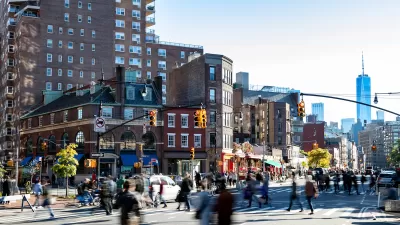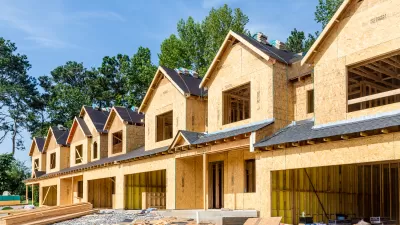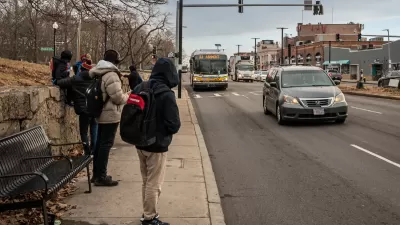Spokane, Washington may be at a crossroads as voters consider expanding the city's urban transportation system. Some say it's key to attracting young workers and building a walkable urban environment. Others see it as a waste of money.

This November, voters in Spokane, Washington will have the opportunity to vote for an increase in the sales tax to fund a raft of transportation projects including a new bus-rapid transit system. John Robert Smith of Transportation for America, writing on the Opinion Page for the Spokesman-Review, advocates for the need for better mass transit as a means for attracting and retaining young workers who might otherwise look elsewhere. Noting the downward trend of millennials driving cars, Smith writes that cities are now competing to create the urban, walkable neighborhoods that attract a wide range of jobs and workers. Smith notes:
In “Core Values,” a study my organization conducted on the movement of companies across the country relocating to downtowns, businesses reported that current and potential employees want neighborhoods with restaurants, cafes, cultural institutions, entertainment and nightlife as well as easy access by public transportation.
...
Bus rapid transit done right can bring economic benefits akin to more expensive light rail systems, but at a lower price – a great recipe for midsize cities that aren’t quite ready for rail-based transit.
In a follow-up to Smith's opinion piece, Randall O'Toole of the Cato Institute argues against the sales tax increase as a waste of funds to be used by the Spokane Transit Authority to do "projects promoted by the federal government." O'Toole also argues that the success of Portland in attracting young workers has less to do with its light rail system and more to do with its abundance of microbreweries.
FULL STORY: John Robert Smith: Will Spokane get on board or be left behind?

Pennsylvania Mall Conversion Bill Passes House
If passed, the bill would promote the adaptive reuse of defunct commercial buildings.

Planning for Accessibility: Proximity is More Important than Mobility
Accessibility-based planning minimizes the distance that people must travel to reach desired services and activities. Measured this way, increased density can provide more total benefits than increased speeds.

Fair Housing Cannot Take a Back Seat to ‘Build, Baby, Build’
If we overlook fair housing principles in the plan to build US housing back better, we risk ending up right back where we started.

LA Metro Board Approves New 710 Freeway Plan
The newest plan for the 710 corridor claims it will not displace any residents.

Austin’s Proposed EV Charging Rules Regulate Station Locations, Size
City planners say the new rules would ensure an efficient distribution of charging infrastructure across the city and prevent an overconcentration in residential areas.

Making California State Parks More Climate-Resilient
A recently released report offers recommendations for keeping state parks healthy and robust, including acquiring additional land for conservation and recreation.
City of Costa Mesa
Licking County
Barrett Planning Group LLC
HUD's Office of Policy Development and Research
Mpact Transit + Community
HUD's Office of Policy Development and Research
Tufts University, Department of Urban and Environmental Policy & Planning
City of Universal City TX
ULI Northwest Arkansas
Urban Design for Planners 1: Software Tools
This six-course series explores essential urban design concepts using open source software and equips planners with the tools they need to participate fully in the urban design process.
Planning for Universal Design
Learn the tools for implementing Universal Design in planning regulations.


























